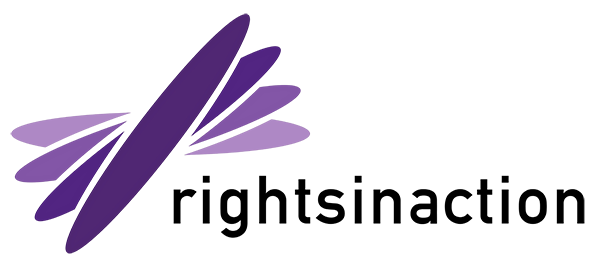
Welcome To Module Four
MC 4: Advanced Communication and Relationship Skills for Independent Advocates
Online Assistance.
Passionate about solving problems through creative communications. Offering affordable goods.
Key Information
You will explore how specialised communication can transform your advocacy practice
Delivery
This module is completely online and self paced.
Fees
This course is currently fully funded.
— Overview
Learning Area 1: Apply Specialised Communication Techniques to Support Client Engagement
In this session, you will explore how specialised communication can transform your advocacy practice. Effective communication is more than exchanging words; it is about truly connecting with clients, especially those in rural and remote Queensland who face unique challenges.
Whether you are working with First Nations peoples, culturally diverse communities, or clients with disabilities, this module provides practical skills to listen actively, understand trauma, support decision-making, and tailor your approach to each individual’s needs.
Mastering these skills builds client trust, fosters empowerment, and ultimately leads to more meaningful advocacy outcomes.
This module introduces you to the essential communication skills required to build trust, understanding, and engagement in independent advocacy settings.
• Active Listening and Trauma-Informed Practice: You explored how to use active listening and trauma-informed communication to create safe, respectful, and empowering conversations with clients — particularly those with complex histories or psychosocial needs.
• Supported Decision-Making: You learned how to apply supported decision-making techniques to help clients understand their options, clarify their goals, and remain at the centre of all advocacy actions.
• Inclusive and Adaptable Communication: The module guided you in adapting your communication approach to meet the diverse needs of clients, including people from Culturally and Linguistically Diverse (CALD) backgrounds, First Nations communities, and individuals with disabilities or cognitive impairments.
• Cultural Safety and Respect: You examined how to communicate in ways that uphold cultural protocols, reduce power imbalances, and show respect for a person’s identity, community, and lived experience.
• Communication Barriers: You considered how digital exclusion, literacy challenges, language barriers, or past trauma can impact communication — and how to respond with patience, clarity, and practical solutions.
— OVERVIEW
Learning objectives:
1. Demonstrate active listening techniques that build trust and understanding.
2. Use trauma-informed communication to ensure sensitivity when engaging with clients.
3. Employ supportive decision-making to empower clients in their choices.
4. Adapt communication styles to suit diverse client needs, including rural, CALD, First Nations, and clients with disabilities.
— Overview
Learning Area 2: Advanced communication and relationship skills for Independent Advocates
In this learning area, you’ll develop skills to support clients through emotionally challenging situations and promote their decision-making autonomy. As an independent advocate, your role is not to mediate disputes, but to maintain a client-centred focus, ensuring the client’s voice is heard, their rights upheld, and their choices respected.
Throughout this module, you will explore the importance of supporting clients through conflict and capacity-related challenges, particularly within tribunal settings.
• Conflict Resolution: You developed an understanding of how to de-escalate tensions and mediate disputes with empathy, especially when working with clients from culturally and linguistically diverse backgrounds.
• Capacity Building: You examined the Queensland Capacity Assessment Process (QCAP) and how to support clients in regaining or enhancing their decision-making capabilities.
• Trauma-Informed Practice: The module emphasized the importance of recognising trauma responses, adapting communication strategies, and maintaining a culturally safe environment throughout the advocacy journey.
• Inclusive Practice: You considered how to adapt advocacy approaches for clients with mental health conditions, disabilities, and those living in rural and remote Queensland communities.
— KEY POINTS
Learning objectives:
1. Engage in conflict resolution practices while maintaining a client-centered approach (not as mediators but as client advocates).
2. Support clients in building or reclaiming capacity for decision-making that has been diminished over time.
3. Assume decision-making capacity for clients unless proven otherwise, utilizing Queensland's Capacity Assessment Guidelines for guidance.
— Overview
Learning Area 3: Develop and Implement Action-Oriented Advocacy Plans
In this section, you’ll learn how to create practical, flexible advocacy plans that meet your client’s individual goals and circumstances.
Whether you’re helping a client with housing, guardianship, or access to supports, the plan you develop will be the foundation for meaningful outcomes. We’ll explore how to identify and manage risks, make effective referrals, and build strong working relationships that promote trust and autonomy — especially for clients in rural or remote areas, or those navigating cultural, physical, or mental health challenges.
This module focuses on equipping you with practical tools and frameworks for creating and delivering effective, person-centred advocacy plans.
• Risk Identification: You learned to assess risk from multiple dimensions—legal, social, cultural, and safety—and respond with proactive management strategies tailored to each client.
• Action Planning: The module provided step-by-step guidance on building advocacy plans that are measurable, achievable, and rooted in the client’s unique goals and values.
• Referrals: You explored how to identify, map, and activate local, regional, and culturally specific support networks—even in rural or remote settings with limited services.
• Relationship Building: You considered the key role of trust, respect, and collaboration in building empowering relationships that enhance client autonomy and advocacy outcomes.
— KEY POINTS
Learning objectives:
1. Identify and manage risks associated with advocacy cases.
2. Develop clear, action-oriented advocacy plans aligned with client goals.
3. Navigate referral pathways to connect clients with relevant services and supports.
4. Employ relationship-building strategies to enhance client autonomy and outcomes.
GET QUALIFIED
Get A Digital Badge To Stand Out
Upon Completion Get A Digital Badge That Can Be Applied To Your Socials

Olivia M.
No Digital Badge

James W.
Advocacy Digital Badge

Sarah T.
Advocacy Digital Badge

Tom B.
No Digital Badge
Still have a question? Email us at [email protected]

